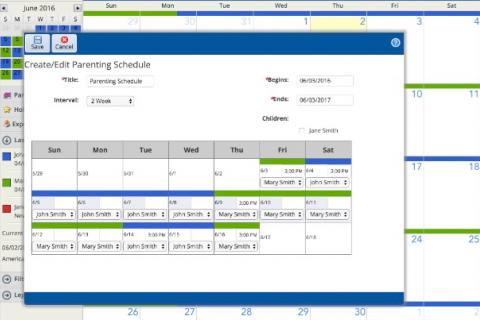When You Can’t Agree on Family Arrangements After Divorce

Agreements between co-parents during divorce proceedings can be hard to attain. With emotions at an all-time high and resentments from past arguments brought to the foreground, parents may have difficulties seeing past the storm to create a comprehensive parenting plan together.
Conflict can, unfortunately, become a priority in these situations. While tough to admit, parents finding themselves unwilling to compromise when it comes to their shared parenting arrangements may be ultimately placing the needs of their children on the back burner.
When this happens, sometimes the courts must step in and take control over the creation of a parenting plan. However, this is far from ideal. Courts are often incredibly busy and must make a decision about a family in a relatively short amount of time.
Exhaust all options
It’s incredibly important that co-parents exhaust all available options when trying to come to an agreement about their parenting plan. Raising children from separate households is a tough situation to acclimate to. It’s not surprising that sometimes parents have a hard time seeing the positive in deciding their parenting schedule, expense reimbursement percentages, and other aspects of shared parenting. It’ll often feel like no one is happy with the decisions being made.
Nevertheless, parents should strive to come to those decisions mutually, whether independently or with the assistance of lawyers or a Family Dispute Resolution (FDR) practitioner. This process may be the most difficult of a divorce, but the effort put into those decisions will help parents put their best foot forward in their new co-parenting relationship.
Rather than contending with an arrangement created by a relative stranger, co-parents who work together to create a plan that works for everybody begin their co-parenting relationship with a spirit of cooperation. That can go along way in helping the adjustment to shared parenting go a little more smoothly in those first few months.
Court involvement
In order for parents to submit an application to a family law court, they must first receive a referral certificate from an FDR practitioner. Parents must typically attempt FDR first before receiving this certificate; however, in cases where FDR is an inappropriate step for the situation, an FDR practitioner may issue the certificate without parents needing to go through the FDR process. The reasons for receiving this certificate will be listed as one of 5 things:
-
the other party did not attend
-
you and the other part attended and made a genuine effort to resolve the dispute
-
you and the other party attended but one or both of you did not make a genuine effort to resolve the dispute
-
the FDR practitioner decided your case was not appropriate for FDR, or
-
the FDR practitioner decided it was not appropriate to continue part way through the FDR process
If a case is brought before a family court, a judge will rely on multiple sources of information in order to make their decision. One such source is a Family Report, an independent evaluation of family circumstances, though this report may not be applicable in every case brought before a judge. When ordered by the judge presiding over the case, the assessment is performed at no cost to the involved parties; however, if a private assessment is arranged by the parents, they must cover the costs of the consultant.
Family reports, while assisting judges in determining parenting arrangements, can also help parents reach an agreement before the final parenting orders are determined by the court. They can provide useful insights into the nature of a child's relationship with both parents, the capacity of each parent to foster healthy relationships between their co-parent and their children, and other aspects of the relationships between family members.
While family reports can provide helpful insights, consultants are tasked with answering the monumental question of 'what's the best arrangement for children' within a relatively short time frame. Consultants use rigorous standards to provide comprehensive and fair assessments; nevertheless, parents may be unhappy with the results of the consultant's investigation.
Alternatively, compromising with a former partner through Family Dispute Resolution may feel like an equally monumental task. But parenting arrangements handed down by a judge through a parenting order have the potential to feel impersonal, possibly missing some of the main concerns parents have about shared parenting after a divorce.
If parents cannot agree on their parenting arrangements after a divorce, positive and productive co-parenting can be delayed. When conflict defines a relationship and prevents parents from working together to create a plan for their children's benefit, court involvement can provide necessary insight into the best arrangement for a family.
Regardless of any previous conflict, parents should be able to rely on each other to follow the parenting orders determined by the family court. A successful co-parenting relationship is predicated on trust, which often needs to be rebuilt after a contentious divorce. So whether a parenting plan was created through court involvement or arrived at through mediation, to reach a point where decisions can be made cooperatively, parents can rebuild trust by following the particulars of their parenting arrangements.
More on parenting arrangements
NOTE: Many state and federal laws use terms like ‘custody’ when referring to arrangements regarding parenting time and decision-making for a child. While this has been the case for many years, these are not the only terms currently used to refer to these topics.
Today, many family law practitioners and even laws within certain states use terms such as ‘parenting arrangements’ or ‘parenting responsibility,’ among others, when referring to matters surrounding legal and physical child custody. You will find these terms as well as custody used on the OurFamilyWizard website.

